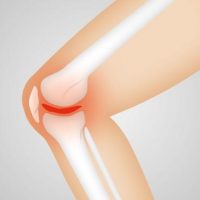Featured Products
- In-Stock Tumor Cell Lines
- Human Orbital Fibroblasts
- Human Microglia
- Human Pulmonary Alveolar Epithelial Cells
- Human Colonic Fibroblasts
- Human Type II Alveolar Epithelial Cells
- Human Valvular Interstitial Cells
- Human Thyroid Epithelial Cells
- C57BL/6 Mouse Dermal Fibroblasts
- Human Alveolar Macrophages
- Human Dermal Fibroblasts, Adult
- Human Lung Fibroblasts, Adult
- Human Retinal Muller Cells
- Human Articular Chondrocytes
- Human Retinal Pigment Epithelial Cells
- Human Pancreatic Islets of Langerhans Cells
- Human Kidney Podocyte Cells
- Human Renal Proximal Tubule Cells
Primary Cells
Explore Products



 Human Fibroblast-Like Synoviocytes Osteoarthritis, Adult (FLS-OA) are primary cells isolated from human synovial tissues. These cells typically cryopreserved at the earliest passage and have a proliferative capacity of ≥5 population doublings. FLS-OA constitute 75-80% of the synovial intimal lining and are classified as type B synoviocytes. Functionally, they play a critical role in maintaining joint homeostasis by contributing to synovial fluid formation and regulating chondrocyte nourishment. Under pathological conditions such as rheumatoid arthritis and osteoarthritis, they adopt an aggressive phenotype, characterized by increased secretion of pro-inflammatory cytokines and matrix metalloproteinases that contribute to cartilage degradation. These cells express characteristic markers, including Cadherin-11, VCAM-1, CD90 and CD55.
Human Fibroblast-Like Synoviocytes Osteoarthritis, Adult (FLS-OA) are primary cells isolated from human synovial tissues. These cells typically cryopreserved at the earliest passage and have a proliferative capacity of ≥5 population doublings. FLS-OA constitute 75-80% of the synovial intimal lining and are classified as type B synoviocytes. Functionally, they play a critical role in maintaining joint homeostasis by contributing to synovial fluid formation and regulating chondrocyte nourishment. Under pathological conditions such as rheumatoid arthritis and osteoarthritis, they adopt an aggressive phenotype, characterized by increased secretion of pro-inflammatory cytokines and matrix metalloproteinases that contribute to cartilage degradation. These cells express characteristic markers, including Cadherin-11, VCAM-1, CD90 and CD55. 